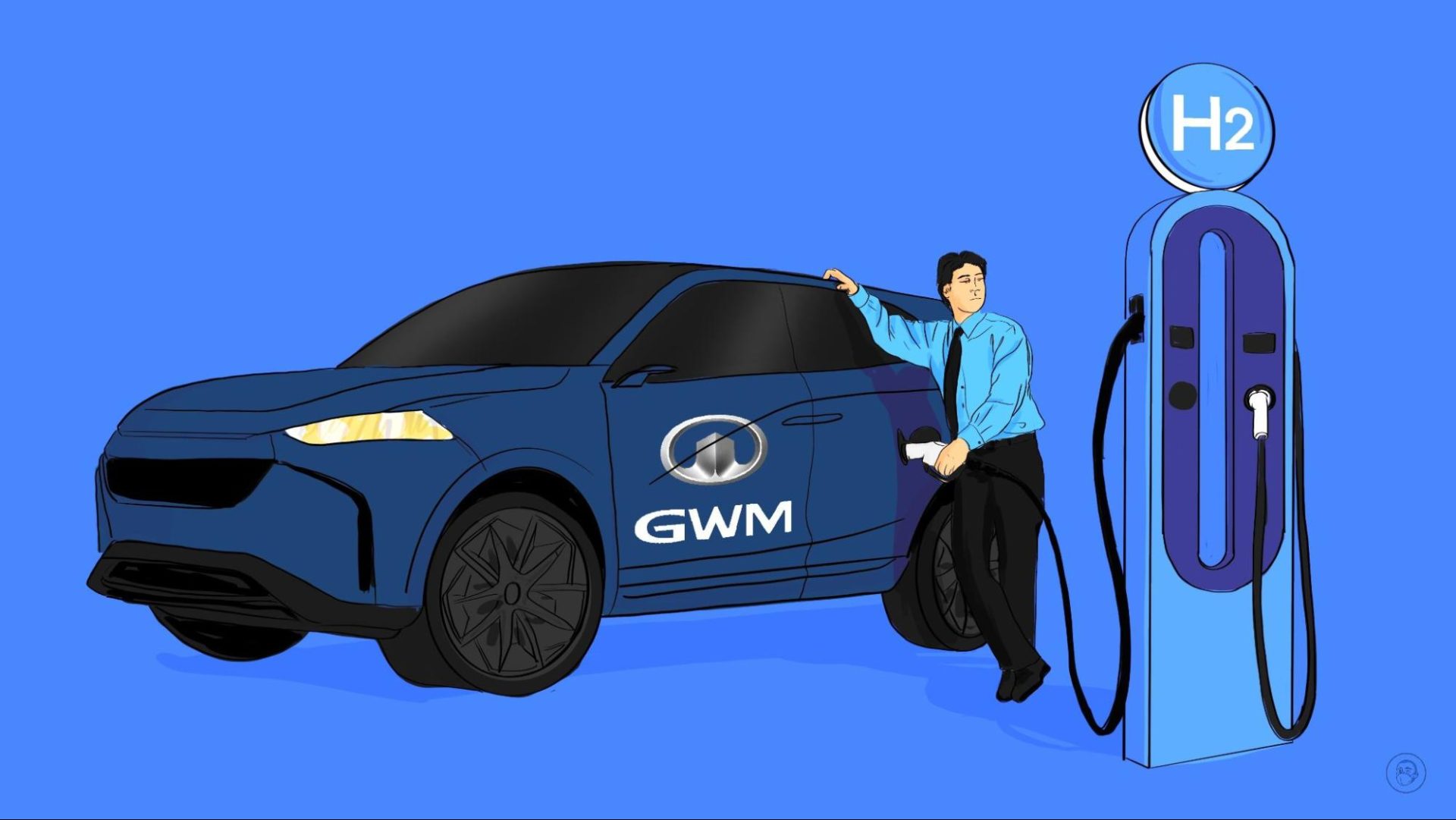Great Wall Motors has made a risky and possibly premature bet on hydrogen cars
One of China’s biggest carmakers is launching a new line of cars that will run on electricity generated by hydrogen fuel cells. It’s a bold move, but it’s unclear if the company can succeed with a technology Elon Musk calls “dumb.”

On Tuesday we reported that Great Wall Motors 长城汽车 plans to launch a new brand (the company’s seventh) of high-end passenger vehicles at the end of this year, postponed from the start of the second quarter due to ongoing COVID-19 lockdowns. The new cars will be powered by hydrogen fuel cells.
The most fundamental trend in the auto industry over the last decade has been the transition from cars with internal combustion engines to electric vehicles (EVs), usually running on lithium-ion batteries. There are also several other non-fossil-fuel technologies that carmakers, particularly in China, are developing.
In China, the trend is unmistakable:
- According to data by the China Passenger Car Association (CPCA) 乘联会, 4.92 million traditional fuel vehicles were sold domestically during the first four months of the year, a decrease of 18% year-on-year, but there were 1.35 million sales of new energy vehicles (NEVs), an increase of 128.4% year-on-year.
- NEVs enjoy substantial government support, including purchase tax exemptions and subsidies. On Monday the State Council announced a staged reduction of the purchase tax of some passenger cars by 60 billion yuan ($8.97 billion), most of which will likely apply to electric vehicles.
But Great Wall Motors arrived late to the NEV party, and it is struggling to catch up to its closest rivals BYD 比亚迪汽车 and Geely 吉利汽车:
- From January to April, Great Wall Motors sold 37,900 new energy vehicles, a year-on-year decrease of 0.5%. In April, the company sold only 3,756 new energy vehicles, a year-on-year decrease of 49.2%.
- By contrast, in April BYD sold 105,500 new energy vehicles, a year-on-year increase of 313.6%; and Geely sold 13,000 new energy vehicles, a year-on-year increase of 339.5%.
Now, Great Wall Motors is betting on the latest (but as yet not economically viable) trend: Fuel Cell Electric Vehicles (FCEVs) powered by hydrogen. As a clean energy source, hydrogen also has strong government support:
- Earlier this month, the powerful government policy-making body, the National Development and Reform Commission (NDRC) announced a medium- and long-term plan for the development of the domestic hydrogen energy industry. The plan clearly identifies hydrogen as an important component of China’s future energy system.
- Domestic demand for hydrogen is expected to increase from 20 million tonnes in 2021 to 60 million tonnes in 2060, and Chinese companies are now studying the use of hydrogen energy not only in cars but also in drones, robots and aircraft.
Great Wall Motors started to study hydrogen energy in 2015, and established a hydrogen energy technology center in 2018. In 2019, the company integrated its hydrogen energy resources into a new company, FTXT Energy Technology 未势能源科技.
Great Wall Motors’ hydrogen energy roadmap essentially consists of a demonstration phase (2021-2025), opening up the hydrogen economy (2025-2035), and building a “hydrogen society” (2035-2050).
The context
There are currently three mass-produced hydrogen energy passenger car models available on the global market: The Toyota Mirai, Hyundai NEXO and BMW iX5.
At present, the prospects for the large-scale commercialization of hydrogen energy remain uncertain: It is still too expensive (the Mirai, for example, is priced at about 400,000 yuan, or almost $60,000, and global sales in 2021 were only 5,918 units); progress with fuel cell R&D is slow; the technology depends on a highly complex production chain; and hydrogen refueling stations are much more costly to construct than EV charging and swapping stations. Several major global auto companies have suspended some or all of their hydrogen energy projects, including Daimler, Honda and Hyundai.
Some in the industry, such as Elon Musk, are not even convinced that hydrogen-powered vehicles are feasible or even desirable at all, because of the large tanks required to store liquid hydrogen, the high cost and energy-intensive process of producing hydrogen, and the much greater need for hydrogen energy in dirty industries like steel, chemicals, and cement — not cars.
The takeaway
Hydrogen might be cheaper than natural gas by 2025, and with strong support from Beijing, China (and Great Wall Motors) might be able to take the lead in the large-scale commercialization of hydrogen energy vehicles.
But Great Wall Motors’ bet on hydrogen vehicles still looks very risky.






